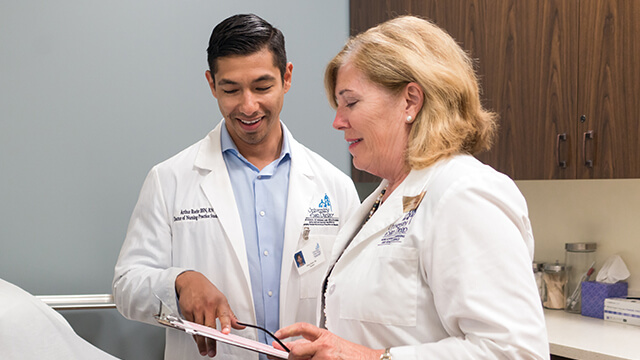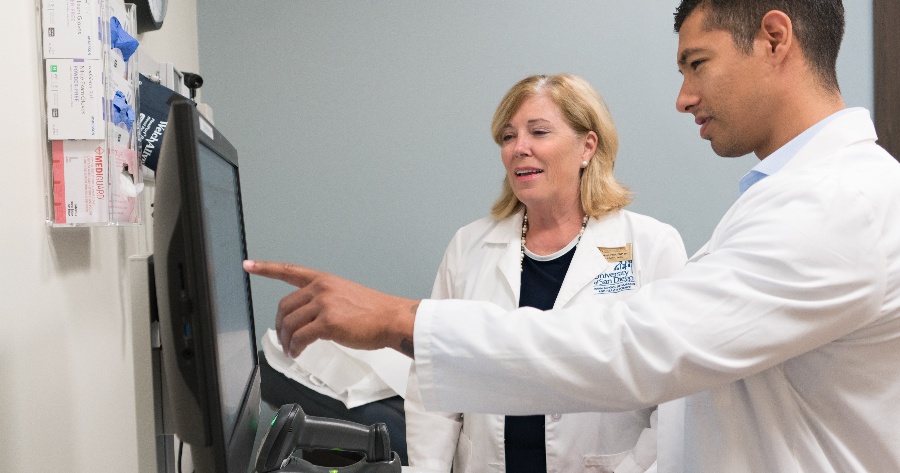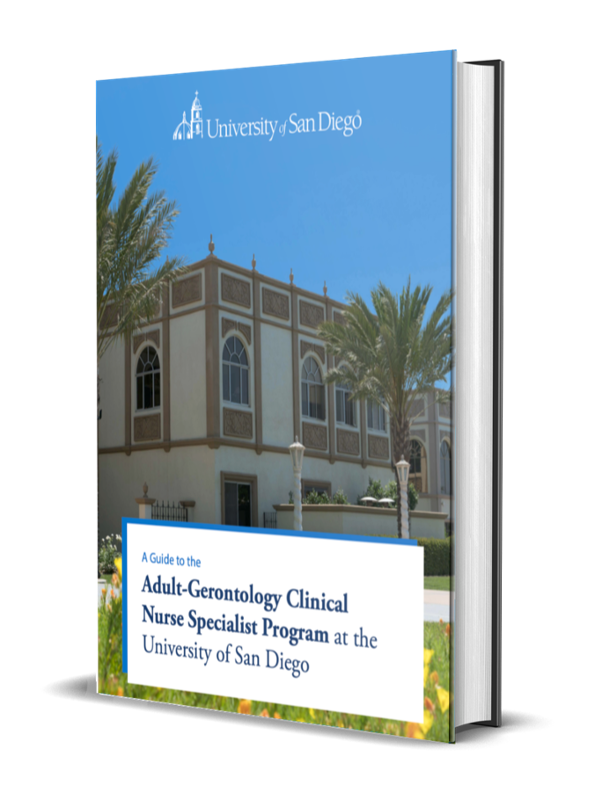Request More Information About Our DNP Programs
At the University of San Diego Hahn School of Nursing, we strive to create and maintain personal connections between faculty and students; after all, those relationships are what fuel our collective success and impact.
We have more than 40 years of experience cultivating clinicians who go on to transform health care.
Will you be one of them?


















